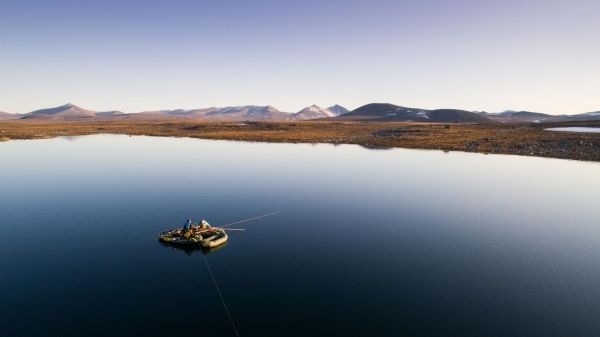Imagine not a white, but a green Arctic, with woody shrubs as far north as the Canadian coast of the Arctic Ocean. This is what the northernmost region of North America looked like about 125,000 years ago, during the last interglacial period, finds new research from CU Boulder.
Researchers analyzed plant DNA more than 100,000 years old retrieved from lake sediment in the Arctic (the oldest DNA in lake sediment analyzed in a publication to date) and found evidence of a shrub native to northern Canadian ecosystems 250 miles (400 km) farther north than its current range.
As the Arctic warms much faster than everywhere else on the planet in response to climate change, the findings, published this week in the Proceedings of the National Academy of Sciences, may not only be a glimpse of the past but a snapshot of our potential future.
Read More: University of Colorado Boulder
Sarah Crump and her field partner maneuver their makeshift raft across a lake on Baffin Island. (Photo Credit: Zach Montes Orijin Media)


